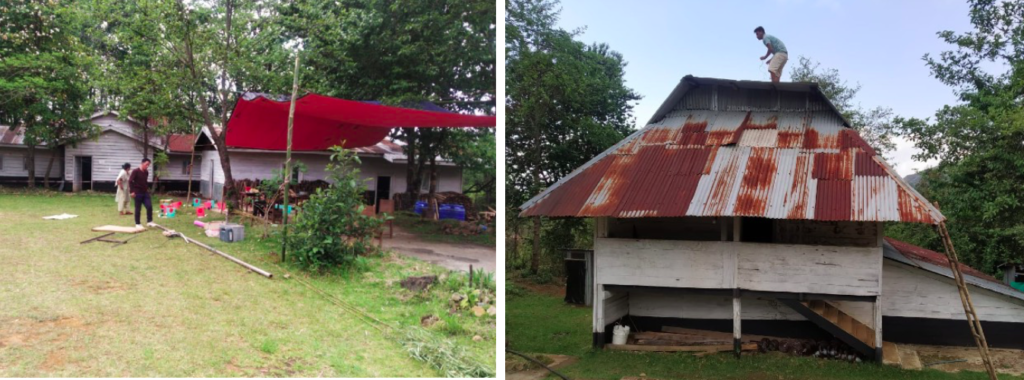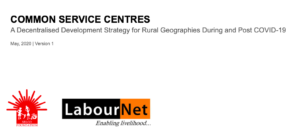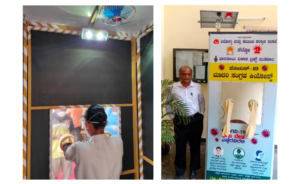Context
With rapid increase in the cases of COVID19 infected persons in India, while in March/April the disease’s spread was limited to the main cities, the virus has now increasingly started reaching the remote parts of the country. This has resulted in straining the health infrastructure, a key concern being the more under- developed and under-resourced states, such as the north eastern states of India. State governments have been drawing up plans to fight the spread of the disease by taking preventive steps and also identifying the places where the potential affected patients can be quarantined to ensure that the transmission chain is broken.
In the state of Manipur, the number of cases detected as of 15th May 2020 was only 3, but with the migrants coming back home from other states this number is bound to increase. By 17th May, 4 new cases were detected, all amidst the return of the people who were stranded in other states so far.
One such district is the Ukhrul District. Ukhrul district has one District Hospital and 8 PHCs spread across the district evenly present catering to the needs of the existing populations of around 1.83 lakhs. The district has already seen a return of about 500 migrants and is expecting another 7000+ according to local administration. In anticipation, district administrations and civil society organizations are preparing the state by upgrading Primary Healthcare Centres for quarantine and screening. But the existing infrastructure has been found to be insufficient to house all of the anticipated returning migrants. Thus, more quarantine centers are needed for which educational institutions and other public institutions are being identified to be temporarily converted into the quarantine centres
Intervention
Quarantine is the separation and restriction of movement or activities of persons who are not ill but who are believed to have been exposed to infection, for the purpose of preventing transmission of diseases. Persons are usually quarantined in their homes, but they may also be quarantined in community-based facilities. The quarantine can be applied to an individual or to a group of persons who are exposed at a large public gathering or to persons believed exposed on a conveyance as per guidelines issued by the Ministry of Health and Family Welfare.
In addition to that each of the quarantine center has to have minimum facilities in terms of housing the medical staff, for housing the medical equipment i.e. Thermal thermometer, Stethoscope, BP machine etc. In Manipur, the administration has also been keen to ensure that all quarantine facilities have basic amenities such as reliable and constant electricity and water supply- ensuring the comfort of the quarantined individuals and medical staff. This is to also ensure that the quarantined individuals are not tempted to escape from the facility and go to their homes, putting their family members at risk. Absence of reliable power can also severely hamper the smooth operations and delivery of care services in such facilities.
As already stated, estimates show that the existing health infrastructure in the Ukhrul district might not be able to cope up with the anticipated influx of residents who need to undergo mandatory quarantine and at same time cater to the other medical needs of the population. After careful assessment of such identified facilities, a comprehensive plan has been suggested to the District Administration. Facilities with unreliable access to electricity have been mapped, and the list has been present to the District Administration for installation of Solar Energy Systems for Lighting and Mobile Charging.
IMPACT
- Rapid upgradation of public infrastructure important to improve the quarantine facilities. As stranded migrants reach home- travelling in manners in which social distancing norms might have been compromised, they might be carriers of virus to remote villages. Before they reach their villages and families, it is important that the state and district administrations provide them with well equipped facilities where they can rest and also save their families from being exposed to the virus through them. A stipulated period of 14 days is required for quarantine.
- Civil Society Organisations, together with District Administrations can play a key role in rapid assessments of facilities and upgradation that is required to convert them for quarantine.







